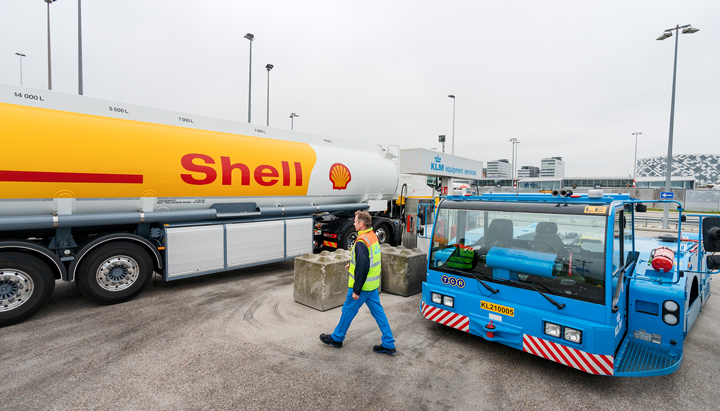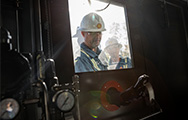Air quality
By 2050, two out of three people could be living in cities, and the number of cars could double from 1 billion today. The wider use of electric, hydrogen or natural gas-powered vehicles – and more efficient combustion engines – can make a major contribution to air quality. This is in addition to switching from coal to natural gas-fired power generation.
We continue to invest in cleaner ways to power homes and vehicles to improve air quality and make urbanisation more sustainable.
Visit www.shell.com/future-transport to find out more about future transport options.
Managing emissions from our operations
We take steps to reduce airborne pollutants in our oil and gas production and processing, for example, lowering emissions of nitrogen oxides, sulphur oxides and volatile organic compounds.
Sulphur oxide, nitrogen oxide and volatile organic compound emissions performance
Our sulphur oxide emissions in 2019 decreased to 65 thousand tonnes compared with 74 thousand tonnes in 2018, primarily due to divestments in Argentina, Canada and Iraq.
Our nitrogen oxide emissions decreased from 111 thousand tonnes in 2018 to 108 thousand tonnes in 2019, primarily as a result of divestments.
Our emissions of volatile organic compounds (VOCs) decreased to 55 thousand tonnes in 2018 from 59 thousand tonnes in 2018, mainly due to divestments.
Read about Shell's Greenhouse gas emissions.
Cleaner-burning fuels
Shell GTL (gas-to-liquids) fuel is a cleaner-burning alternative to diesel which can be used in existing diesel engines without the need for modifications.
Kroonborg, a maintenance support vessel owned by services company Wagenborg Offshore, is the world’s first offshore vessel to run on GTL.
We also produce cleaner-burning LNG for use as maritime and land transport fuel. LNG as a marine fuel, for example, can reduce sulphur emissions, particulates and nitrogen oxide compared to heavy fuel oil or marine diesel. In 2019, Shell Gas & Power Developments B.V. announced a partnership with Qatar Petroleum to expand LNG marine fuel availability around the world and opened our second LNG retail station for trucks in Germany.
In 2019, we launched Alexia 40, a lubricant to help the performance of ships’ engines as they move to lower-sulphur fuels that comply with the new International Maritime Organisation regulations.
Also in 2019, we launched a bitumen product that reduces emissions of specific gases that impact local air quality when asphalt is produced or a road surface is laid. The new formulation, developed at our technology centre in Bangalore, India, acts directly with chemical compounds which are the source of gases such as sulphur dioxide and nitrogen oxide, particulates and odour-releasing molecules.
Working with others
As a member of IPIECA, we support the UN-sponsored Partnership for Clean Fuels and Vehicles, a leading global public-private initiative.
Shell continues to look for ways to help improve local air quality. These include investments in hydrogen fuel technology and electric vehicle recharging stations.

Ground support vehicles at Amsterdam Schiphol Airport in the Netherlands run on Shell gas-to-liquids fuel as part of an agreement with airline KLM.
 Climate change
Climate change
 Sustainable development goals
Sustainable development goals
 Safety
Safety
 About our data
About our data
